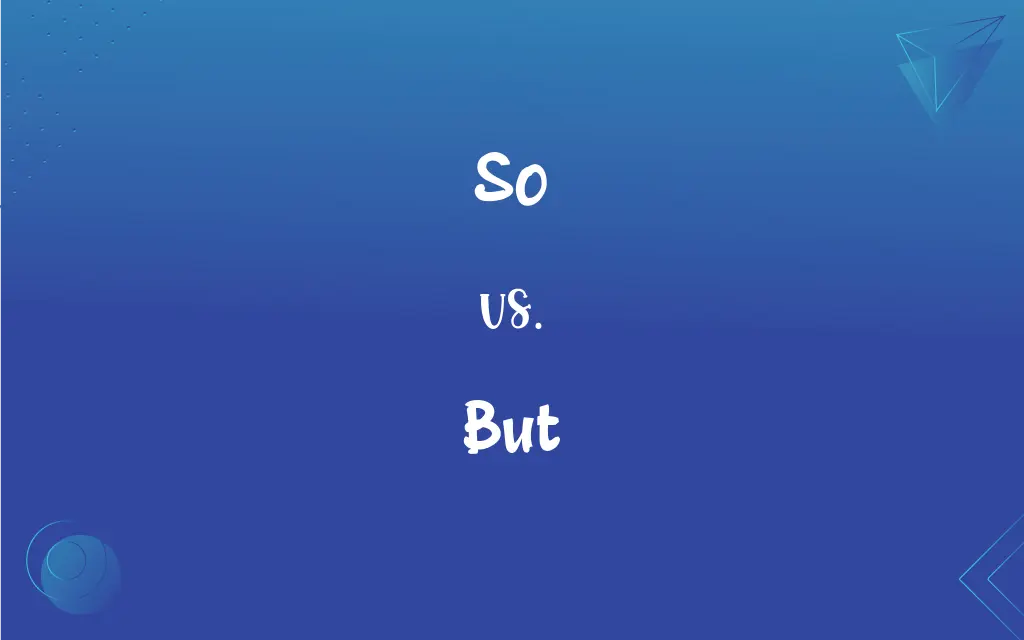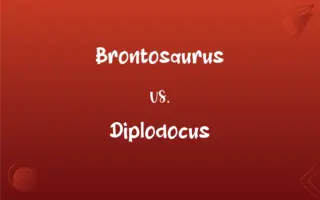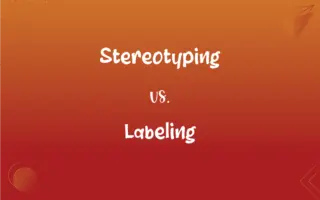So vs. But: What's the Difference?
Edited by Harlon Moss || By Janet White || Published on December 5, 2023
"So" indicates a consequence or a reason, linking cause and effect, while "but" introduces a contrast or exception to a previous statement.

Key Differences
"So" is used as a conjunction to show the result or effect of an action, often indicating a cause-and-effect relationship. On the other hand, "but" is also a conjunction that introduces a contrast or exception, highlighting a difference or contradiction in relation to the preceding clause.
When using "so," the flow of argument or narrative follows a logical sequence, leading from a premise to a conclusion. Conversely, "but" interrupts this flow by introducing an opposing view or contradiction, often shifting the direction of the argument or narrative.
"So" is effective in emphasizing the effects or outcomes of a situation. In contrast, "but" is more about striking a balance in an argument by acknowledging differing points or unexpected turns.
The use of "so" generally conveys a more straightforward and expectant tone, as it connects events in a predictable pattern. "But" introduces a tone of surprise or contradiction, often used to challenge assumptions or introduce new information that changes the context.
In sentences, "so" often precedes an explanation or conclusion, like "I was tired, so I went to bed early." Meanwhile, "but" introduces a contrasting statement, such as "I wanted to go out, but it was raining."
ADVERTISEMENT
Comparison Chart
Function
Indicates causation or reason
Introduces contrast or exception
Sentence Structure
Follows cause with effect
Presents opposing information
Narrative Flow
Continues a logical sequence
Changes direction of the argument
Tone
Conveys expectation or result
Suggests contradiction or surprise
Example Usage
"He studied hard, so he passed."
"She's rich, but very humble."
ADVERTISEMENT
So and But Definitions
So
To indicate a large degree or extent.
The movie was so exciting that everyone clapped.
But
Used in place of ‘yet’ or ‘however’ to introduce a contrasting idea.
It's a small car, but it's surprisingly spacious.
So
Used to indicate the result of something.
It was raining, so the game was postponed.
But
To indicate the only exception.
Everyone but John knew the secret.
So
To indicate the manner or way something is done.
She sang so beautifully that everyone was moved.
But
Used to introduce a statement that contrasts with or seems to contradict something that has been said previously.
I wanted to stay, but I had to leave early.
So
Used as a formal way of saying therefore or thus.
The evidence was inconclusive, so the jury acquitted him.
But
Used to introduce a phrase or clause contrasting with what has already been mentioned.
The book is short but interesting.
So
To express a purpose or reason.
I stayed up late so I could finish my project.
But
To indicate something excluded from a previous statement.
They eat everything but meat.
So
To the amount or degree expressed or understood; to such an extent
She was so happy that she cried.
But
On the contrary
The plan caused not prosperity but ruin.
So
To a great extent; to such an evident degree
But the idea is so obvious.
FAQs
What is the primary use of 'so' in a sentence?
To indicate a consequence or reason.
Is it grammatically correct to start a sentence with 'but'?
Yes, it can be used to start a sentence for emphasis.
What is a common synonym for 'so'?
"Therefore" or "thus" are often used as synonyms.
How is 'but' commonly used?
As a conjunction to introduce contrast.
Can 'so' start a sentence?
Yes, especially when summarizing or concluding a point.
Can 'so' imply a cause-effect relationship?
Yes, it's commonly used to connect cause and effect.
Can 'but' be used as a preposition?
Yes, in contexts like "everyone but John."
What can replace 'but' in a sentence?
"However" or "yet" can be used as alternatives.
Does 'so' have different meanings?
Yes, it can indicate extent, reason, or consequence.
Is 'so' used in formal writing?
Yes, but less frequently for causal relationships.
What is an example of 'so' expressing degree?
"The test was so difficult."
How does 'but' function in complex sentences?
As a pivot point to introduce a contrasting clause.
Is 'but' used to agree or disagree?
Generally to disagree or present an opposing view.
How does 'so' function in a question?
It can emphasize the extent of the inquiry, like "So, what happened?"
Why is 'but' important in conversation?
It allows for presenting contrasting ideas or opinions.
Do 'so' and 'but' change the tone of a sentence?
Yes, 'so' often implies logic, while 'but' suggests contrast.
When should 'but' be avoided in writing?
When overused or in formal arguments where a softer contrast is needed.
Does 'but' have other uses in grammar?
It can also function as an adverb in certain contexts.
Is 'so' used in informal speech?
Very frequently, especially in spoken English.
Can 'so' be a filler word?
Yes, especially in casual speech, like "So, um, what's next?"
About Author
Written by
Janet WhiteJanet White has been an esteemed writer and blogger for Difference Wiki. Holding a Master's degree in Science and Medical Journalism from the prestigious Boston University, she has consistently demonstrated her expertise and passion for her field. When she's not immersed in her work, Janet relishes her time exercising, delving into a good book, and cherishing moments with friends and family.
Edited by
Harlon MossHarlon is a seasoned quality moderator and accomplished content writer for Difference Wiki. An alumnus of the prestigious University of California, he earned his degree in Computer Science. Leveraging his academic background, Harlon brings a meticulous and informed perspective to his work, ensuring content accuracy and excellence.







































































